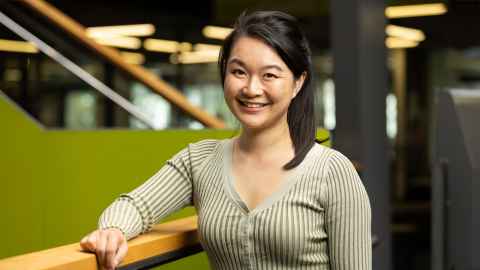Researchers shed light on vaccine decisions
26 February 2024
Research into vaccine hesitancy could inform health services' communications with patients.

Research into vaccine hesitancy finds people’s biggest concern is severe adverse effects, followed by how effective a vaccine is and how long its protection will last.
The researchers from Waipapa Taumata Rau, University of Auckland were prompted by low vaccination rates in New Zealand post Covid-19, raising fears of deadly outbreaks of vaccine-preventable diseases, such as measles.
Vaccine hesitancy remains one of the top ten public health threats identified by the World Health Organisation.
“Identifying Kiwis’ priorities for vaccine information will help health professionals and policymakers provide the information they feel they need to weigh up decisions about vaccinating themselves or their tamariki,” lead investigator Associate Professor Amy Chan, of the School of Pharmacy, says.
Previous research has shown providing people with the information they feel they need is a useful public health tool.
The researchers explored the preferences of more than 600 New Zealanders using an online survey that took them through a series of decisions about vaccines by indicating what information would most influence their choices.
For example, the vaccine could provide longer protection but only be available in hospitals versus shorter protection and widely available in the community.
Overall, people most valued information about adverse effects and how much protection vaccines offered for how long.
Vaccine origin and route of administration were least important.
This differed slightly for people who tended to subscribe to conspiracy theories about vaccines. They wanted to know how long the vaccine had taken to develop and how many doses were required and were less concerned about effectiveness.
Health providers would be do well to advise vaccine-hesitant people how long the vaccine had taken to develop, and the total number of doses required, Chan says.
Media contact
FMHS media adviser Jodi Yeats
M: 027 202 6372
E: jodi.yeats@auckland.ac.nz